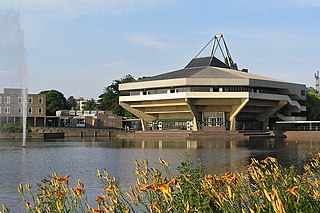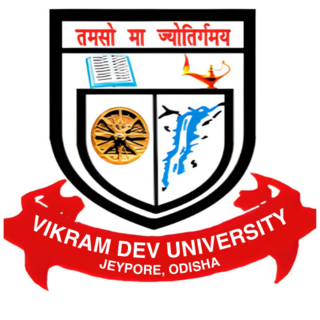Related Research Articles

Universities in the United Kingdom have generally been instituted by royal charter, papal bull, Act of Parliament, or an instrument of government under the Further and Higher Education Act 1992 or the Higher Education and Research Act 2017. Degree awarding powers and the 'university' title are protected by law, although the precise arrangements for gaining these vary between the constituent countries of the United Kingdom.

The Chinese University of Hong Kong (CUHK) is a public research university in Sha Tin, New Territories, Hong Kong.
Habilitation is the highest university degree, or the procedure by which it is achieved, in Germany, France, Italy and some other European and non-English-speaking countries. The candidate fulfills a university's set criteria of excellence in research, teaching, and further education, which usually includes a dissertation. The degree, sometimes abbreviated Dr. habil., Dr hab., or D.Sc., is often a qualification for full professorship in those countries. In German-speaking countries it allows the degree holder to bear the title PD. In a number of countries there exists an academic post of docent, appointment to which often requires such a qualification. The degree conferral is usually accompanied by a public oral defence event with one or more opponents. Habilitation is usually awarded 5–15 years after a PhD degree or its equivalent. Achieving this academic degree does not automatically give the scientist a paid position, though many people who apply for the degree already have steady university employment.

Ulster University, legally the University of Ulster, is a multi-campus public research university located in Northern Ireland. It is often referred to informally and unofficially as Ulster, or by the abbreviation UU. It is the largest university in Northern Ireland and the second-largest university on the island of Ireland, after the federal National University of Ireland.
Academic freedom is the right of a teacher to instruct and the right of a student to learn in an academic setting unhampered by outside interference. It may also include the right of academics to engage in social and political criticism.

A plate glass university or plateglass university is one of a group of universities in the United Kingdom established or promoted to university status in the 1960s. The original plate glass universities were established following decisions by the University Grants Committee (UGC) in the late 1950s and early 1960s, prior to the Robbins Report in 1963. However, the term has since expanded to encompass the institutions that became universities as a result of Robbins' recommendations.

The Quality Assurance Agency for Higher Education is the United Kingdom higher education sector's independent expert quality body. It has a remit to maintain and enhance the quality of teaching and learning in tertiary education in the United Kingdom and beyond. It conducts quality assessment reviews, develops reference points and guidance for providers, and conducts or commissions research on relevant issues.

The American Association of University Professors (AAUP) is an organization of professors and other academics in the United States. AAUP membership includes over 500 local campus chapters and 39 state organizations.

Saginaw Valley State University (SVSU) is a public university in University Center, Michigan, United States, in Saginaw County. It was founded in 1963 as Saginaw Valley College. It is located on 748 acres (303 ha) in Saginaw County's Kochville Township, approximately 5.5 miles (8.9 km) north of downtown Saginaw. Saginaw Valley State is the newest of Michigan's 15 public colleges and universities. SVSU offers over 100 academic programs at the undergraduate and graduate levels with approximately 8,500 students at its main campus in University Center. SVSU offers programs of study in its five colleges.

The Carnegie Corporation of New York is a philanthropic fund established by Andrew Carnegie in 1911 to support education programs across the United States, and later the world.
The Dearing Report, formally known as the reports of the National Committee of Inquiry into Higher Education, is a series of major reports into the future of Higher Education in the United Kingdom, published in 1997. The report was commissioned by the UK government and was the largest review of higher education in the UK since the Robbins Committee in the early 1960s. The principal author was Sir Ronald Dearing, the Chancellor of the University of Nottingham. It made 93 recommendations concerning the funding, expansion, and maintenance of academic standards.
Advance HE is a British charity and professional membership scheme promoting excellence in higher education. It advocates evidence-based teaching methods and awards fellowships as professional recognition for university teachers. Founded in 2003, the Higher Education Academy was responsible for the UK Professional Standards Framework for higher education practitioners and merged to form Advance HE on 21 March 2018.

A Nation at Risk: The Imperative for Educational Reform is the 1983 report of the United States National Commission on Excellence in Education. Its publication is considered a landmark event in modern American educational history. Among other things, the report contributed to the ever-growing assertion that American schools were failing, and it touched off a wave of local, state, and federal reform efforts.
Professors in the United States commonly occupy any of several positions of teaching and research within a college or university. In the U.S., the word "professor" is often used to refer to anyone who teaches at a college of university level at any academic rank. This usage differs from the predominant usage of the word professor in other countries, where the unqualified word "professor" only refers to "full professors", nor is it generally used in the United States for secondary education teachers. Other tenure-track faculty positions include assistant professor and associate professor (mid-level). Other teaching-focused positions that use the term "professor" include Clinical Professor, Professor of Practice, and Teaching Professor. Most faculty with titles of "Lecturer" and "Instructor" in the U.S. are not eligible for tenure, though they are still often referred to as "professors" in a general sense and as a courtesy form of address. Non-tenure-track positions may be full or part time, although the qualifier "adjunct" always denotes part-time.

Vikram Dev University is a public state university located in the city of Jeypore, Koraput district in Odisha, that offers courses primarily at undergraduate and postgraduate levels. It was established in 1947 by Maharaja of Jeypore Sri Vikram Dev IV or Vikram Deo Verma as Jeypore College and later named after him.
This article describes the academic positions and ranks in Sweden.
James Drever FRSE (1910–1991) was a Scottish academic who served as the first Principal of the University of Dundee. He has been described as 'one of the most pivotal figures in the university's history'.

The Universiti Malaya Medical Centre (UMMC), formerly known as University Hospital, is a government-funded teaching hospital and medical instructions located in Pantai Dalam, southwest corner of Kuala Lumpur, Malaysia. It was established by Statute in September 1962 and is part of Universiti Malaya.

Education in Scotland in the twentieth century includes all forms of organised education in Scotland, such as elementary, secondary and higher education. The centre of the education system became more focused on Scotland throughout the century, with the Scottish Education Department partly moving north from 1918 and new departments created by the Scottish Executive after devolution.
Tuition fees in the United Kingdom were reintroduced for full-time resident students in 1998, as a means of funding tuition to undergraduate and postgraduate certificate students at universities. Since their introduction, the fees have been reformed multiple times by several bills, with the cap on fees notably rising to £9,000 a year for the 2012-13 academic year.
References
- ↑ Committee on Higher Education (23 September 1963), Higher education: report of the Committee appointed by the Prime Minister under the Chairmanship of Lord Robbins 1961–63, Cmnd. 2154, London: HMSO
- ↑ Anderson, Robert (March 2010). "The 'Idea of a University' today". History & Policy. Retrieved 17 May 2022.